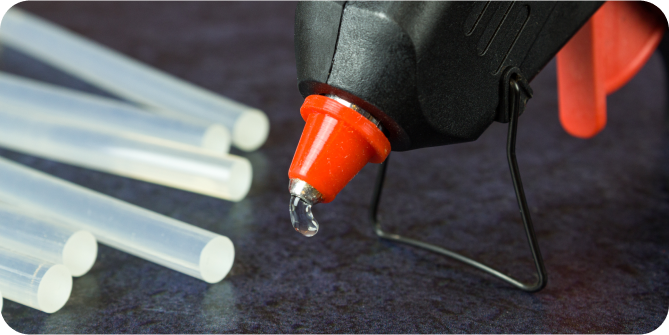The demand for hot melt adhesive (HMA) films is rising across industries due to their clean application, rapid bonding, and solvent-free nature. Globally, the hot melt adhesives market is valued at USD 9.5 billion in 2023 and is projected to reach USD 12.3 billion by 2028, growing at a CAGR of 5.3% (MarketsandMarkets).
India is gaining attention as a cost-efficient and quality-centric source for these products, making it a top destination for B2B adhesive solutions in sectors like automotive, textiles, packaging, and electronics.
What Are Hot Melt Adhesive Films?
Hot melt adhesive films are solid thermoplastic sheets that become tacky upon heating and bond substrates instantly as they cool. Compared to traditional adhesives, HMA films offer:
- Cleaner process (no mixing, no spills)
- Zero drying or curing time
- Excellent adhesion to varied substrates
- Lower environmental impact (solvent-free and low-VOC)
These films are ideal for automation-driven industries and are used in laminating, sealing, bonding, and assembly operations.
India’s Advantage in HMA Film Manufacturing
India’s hot melt adhesive film manufacturers have developed capabilities across EVA, polyamide, TPU, and polyethylene films. The Indian adhesive market is valued at INR 1,800 crore (USD 216 million) and is expected to hit INR 3,000 crore (USD 360 million) by 2027.
Key strengths include:
- Cost-Effective Production: Indian HMA films are 30–40% more affordable than those produced in the EU or US, without compromising on quality.
- Custom Formulations: Leading manufacturers offer tailor-made adhesive films with temperature resistance ranging from -40°C to 160°C, suitable for specialized applications. In-house R&D for custom industrial adhesive film solutions.
- Global Compliance: Many Indian exporters maintain RoHS, REACH, ISO 9001, and IATF 16949 certifications, essential for automotive and electronics OEMs.
B2B Applications Across Industries
- Automotive: For headliner bonding, NVH insulation, and carpet attachment.
- Textile & Apparel: Seam sealing, badge bonding, and collar stiffeners.
- Electronics: Component bonding, screen lamination, and EMI shielding.
- Footwear: Sole adhesion and decorative panel bonding.
- Packaging: Tamper-proof seals and eco-friendly alternatives to solvent-based adhesives.
Supply Chain Capabilities and Export Readiness
India’s HMA film manufacturers are rapidly increasing capacity, with several players investing in multi-layer extrusion lines and cleanroom facilities. Export volumes have grown by 18% YoY, with major shipments going to the UAE, Germany, the US, and Southeast Asia.
Key B2B Trends to Watch
- Increased Use of Thermoplastic Polyurethane (TPU) Films: Especially in medical textiles and wearables due to flexibility and breathability.
- Biodegradable HMA Films: Startups and established firms alike are experimenting with starch-based and PLA-based films to meet eco-compliance in the EU.
- Integration with Automation Systems: HMA films are now being designed to integrate directly into robotic lamination systems, reducing labor dependency and increasing throughput.
Challenges and Mitigation
- Raw Material Fluctuations: Prices of polymers like EVA and PE are subject to global fluctuations. However, local sourcing is improving with the development of Indian petrochemical clusters.
- Limited Local Awareness: In India, HMA film adoption among small manufacturers is still growing. B2B education initiatives are underway to accelerate uptake.
Conclusion
For industries seeking fast, clean, and sustainable bonding solutions, hot melt adhesive film manufacturer India is now a strong B2B proposition. Whether you’re in automotive, electronics, or packaging, partnering with a B2B adhesive solutions provider from India means faster turnaround, better margins, and compliance with global environmental standards.
About the Company:
Innokan is a reputed manufacturer of high-performance hot melt adhesive films in India, offering tailored bonding solutions for automotive, packaging, apparel, and electronics sectors.

